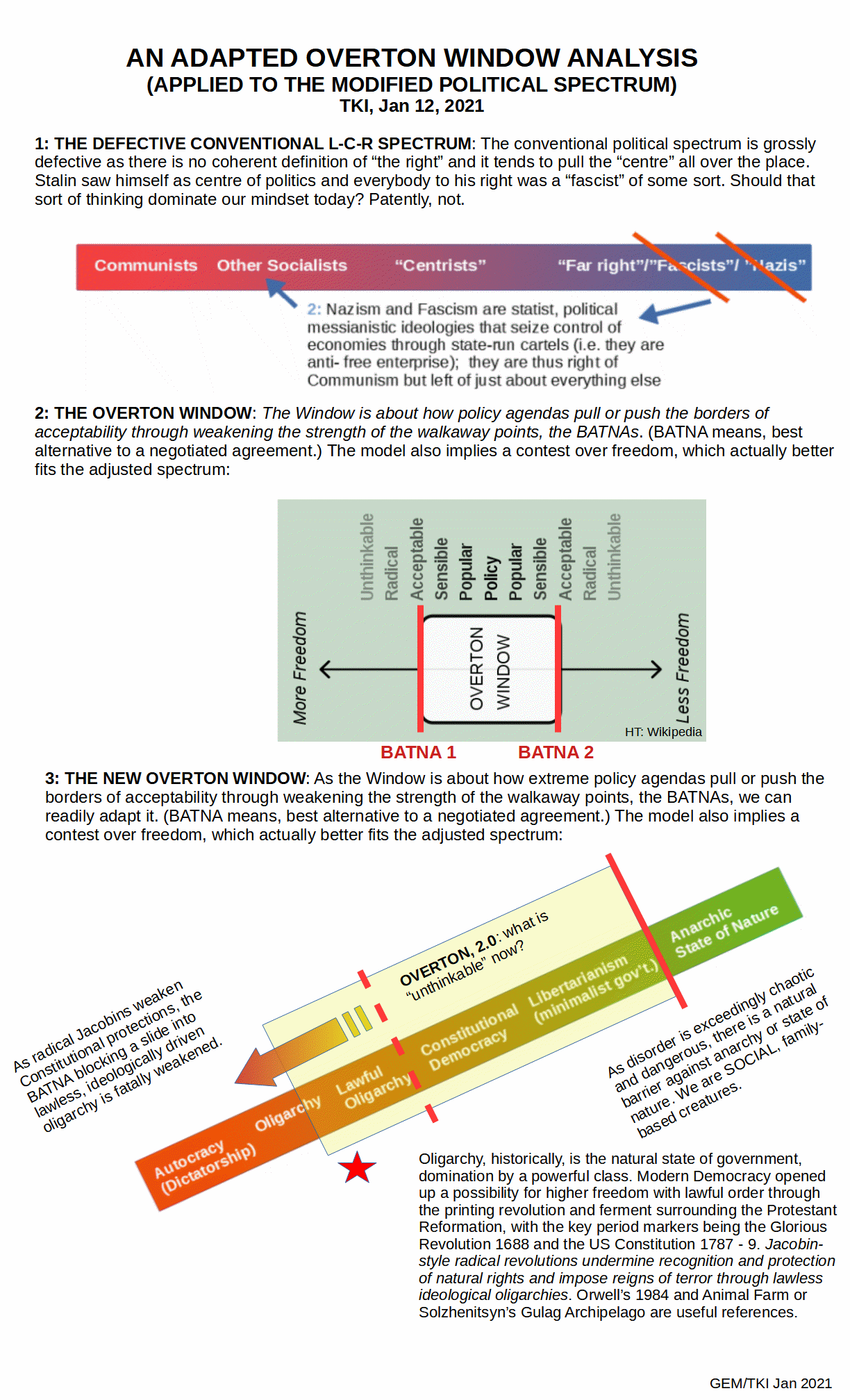again, as a certain objector here has accused:
Right-wing grifters like Jordan Peterson, James Lindsay, and Christopher Rufo make a lot of money selling these lies to the gullible fools who get their worldview injected into their brains by downloading Fox News propaganda
I have not previously heard of these two, but — courtesy YouTube — it is only fair to let them speak for themselves.
Rufo:
(He was here giving a workshop, and onward sessions here and here may be helpful.)
I trust that in future, commenters will refrain from such intemperate language. END
F/N: William S Lind interviews Roger Kimball in the 1990’s on culture form marxism and political correctness:
Similarly, this discussion of the labour theory of value vs the marginal revolution, will help clarify thinking on Marx’s exploitation thesis:
The calculation of value challenge:
These two videos on economic issues will help to clarify underlying issues. Ponder, if titanium would make excellent grills, why is it never used for that?
(Why is it primarily used for aerospace work, and why do old cooking gas containers sometimes end up adapted into grills? What was the advantage to the UK c 1943 to take thousands of worn 12 cylinder, V-block Merlin aero engines, take off their superchargers etc and convert them into Meteor Tank engines, going from 1300 – 1600 HP to about 650 HP? A diamond would make a useful stone for a slingshot, or could be used as an industrial abrasive or could even be burned as fuel, why then are certain clear or attractively coloured diamonds reserved for making jewels? Why is water so much cheaper than diamonds or gold or titanium? A certain sheet of paper with $100 printed on it could be used to light a fire, why would we regard this as foolish waste? Hint, what is the next best use of the metal, or the worn engine, or the diamond, or the water, or the sheet of paper, and what price would someone be willing to pay? This is the opportunity cost principle of value, pivoting on the principle of scarcity.)
U/D Jan 10 23: On a more dynamically and historically based political spectrum, using the Overton Window to show how lawless agendas can undermine lawful government:
